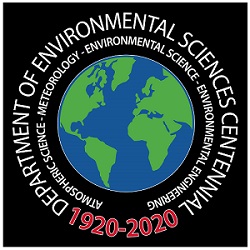DATE/TIME: Friday, October 22, 2021, 2:30 pm
PLACE:
Alan Robock
Atmospheric Science Group, Department of Environmental Sciences, Rutgers University
Global Famine after Nuclear War
seminar recording link
In a nuclear war, bombs targeted on cities and industrial areas would start firestorms, injecting large amounts of soot into the upper atmosphere, which would spread globally and rapidly cool the planet. The soot loadings would cause decadal disruptions in Earth’s climate, which would impact food production systems on land and in the oceans. We show that considering all food sources and potential adaptation measures, such as using animal feed directly for humans, famine would result for most of Earth even from a war between India and Pakistan using less than 3% of the global nuclear arsenal. We look at the climate impacts from a range of scales from regional to global nuclear war, and estimate the total amount of food calories available in each nation, including crops, livestock, and fisheries, for each year following a nuclear holocaust. Our findings quantify the global indirect impacts of nuclear war away from target areas, and demonstrate the need to prevent any scale of nuclear war.



